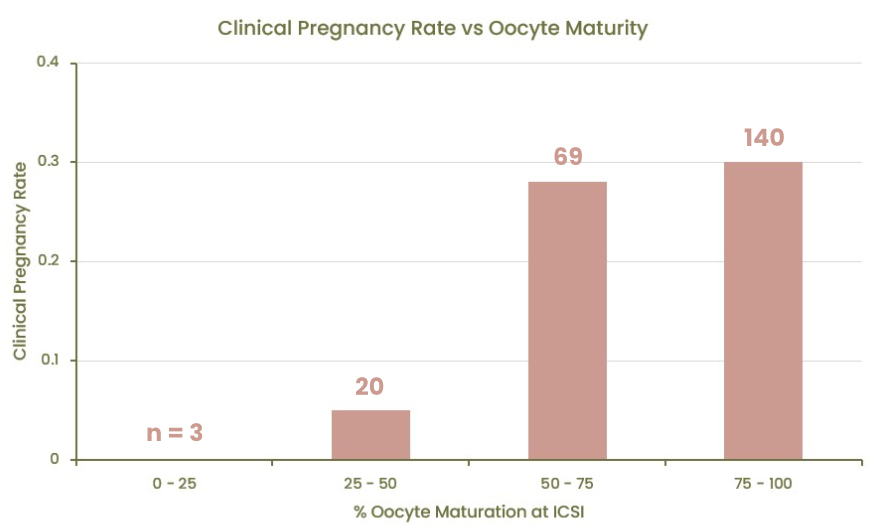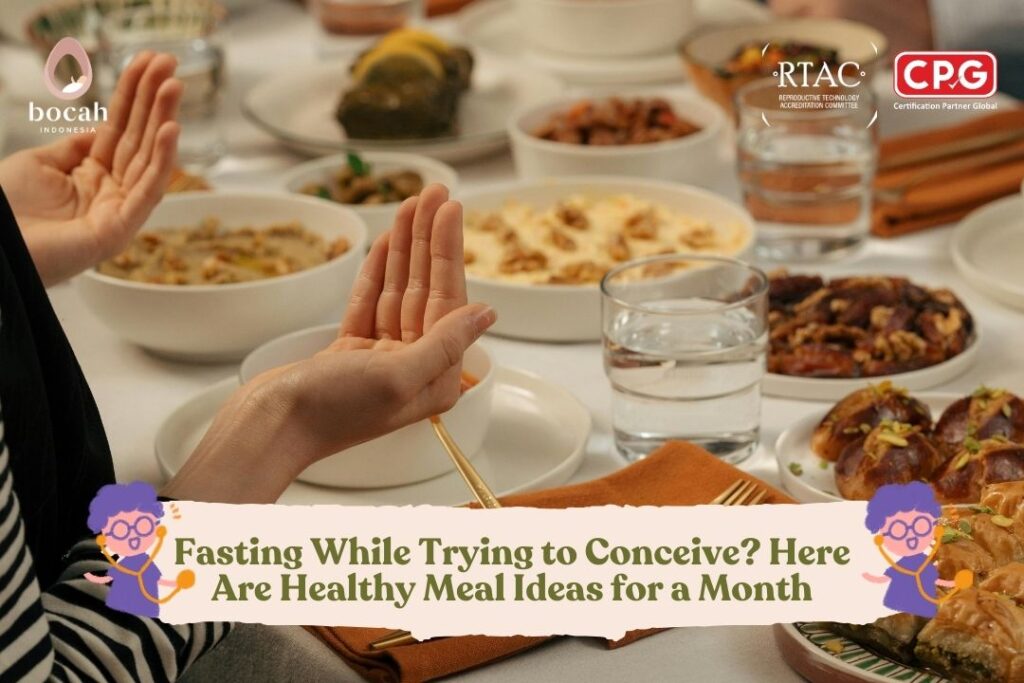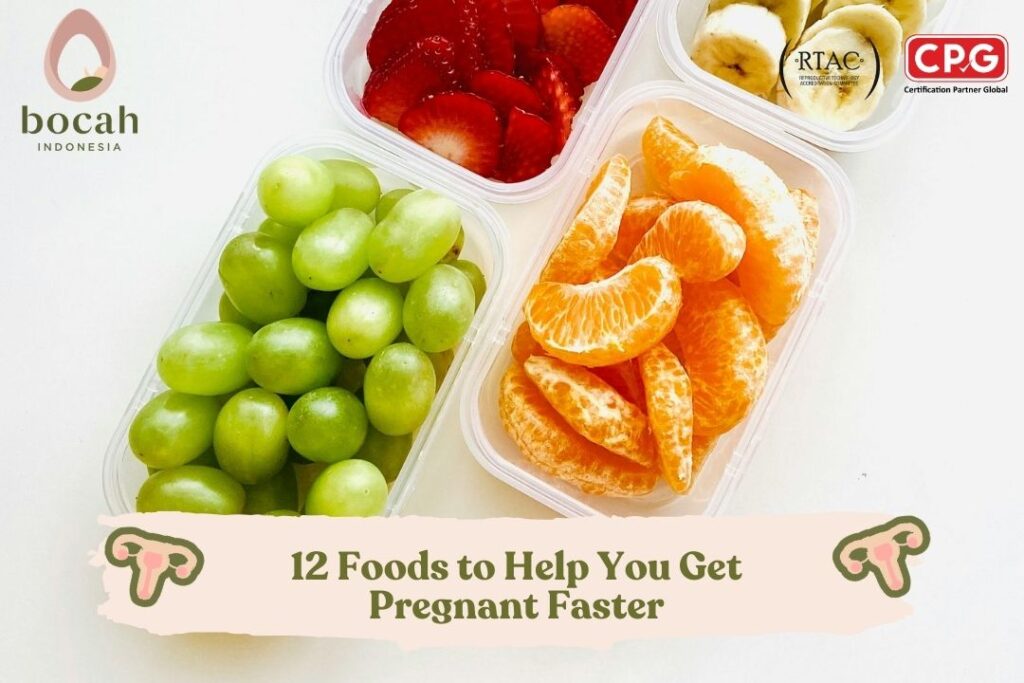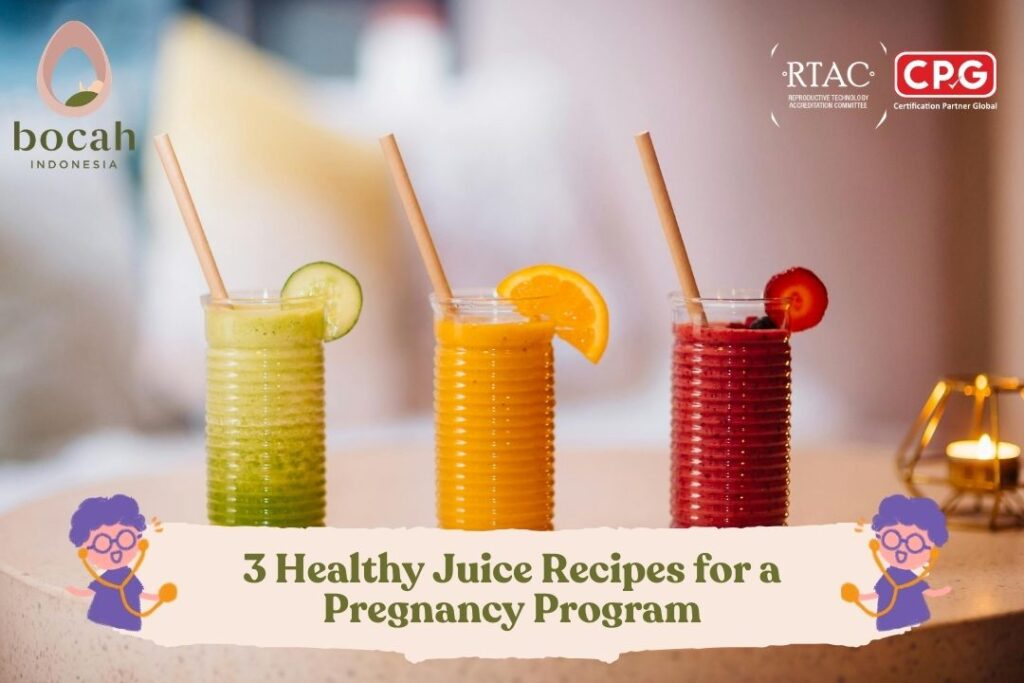In Vitro Fertilization (IVF) Success Rate
Bocah Indonesia has conducted in vitro fertilization procedures on 350 patients, out of which 101 babies have been born through this procedure. The success rate of in vitro fertilization at Bocah Indonesia in 2021 reached 34.3%.

What is The Success Rate of IVF (In Vitro Fertilization) at Bocah Indonesia?

Data Source: Bocah Indonesia 2024
This figure is higher than the HFEA 2022 data (July 2024), which reported an average success rate of 31% for Fresh Cycles and 36% for Frozen Cycles. The success rate of Bocah Indonesia is also higher than the average IVF success rate reported by VARTA 2023. The VARTA 2023 report (data from June 2022 to July 2023) reported an average success rate of 35.4% for both Fresh and Frozen Cycles.

- The success rates are achieved without using egg or sperm donors, demonstrating Bocah Indonesia’s commitment to providing the best possible outcomes and hope for couples, especially in challenging cases.
- Bocah Indonesia ensures optimal egg stimulation, achieving ideal egg maturity to enhance pregnancy success rates. The graph below illustrates that higher egg maturity rates correspond to increased pregnancy rates. With an 83% egg maturity rate, Bocah Indonesia optimizes pregnancy success.

*Graphic citation: Behr BR, et al. Is Oocyte Maturation Rate A Predictor of IVF Outcome?. Fertility and Sterility, Volume 97, Issue 3, S25
- Bocah Indonesia ensures optimal egg retrieval (OPU) procedures, maximizing retrieval of mature eggs, as each egg is precious for prospective parents. Eggs fertilized with sperm develop into embryos. Bocah Indonesia achieves a 100% egg retrieval rate.
- Through ICSI/IMSI methods, Bocah Indonesia achieves high fertilization success rates, with 60.74% of eggs successfully fertilized by sperm.
- Bocah Indonesia maintains internationally accredited embryology laboratory standards. We adhere to the 2017 Vienna Consensus Standards, globally recognized. Our competency standards for Embryo Biopsy, Freezing, and Thawing exceed international benchmarks, supporting optimal pregnancy success rates for parents.
Freeze & Thaw Success Rate
D3 Embryo
D5 Embryo
Success Rate of Embryo Development
Embryo Biopsy Success Rate
Implantation Rate
*ESHRE Special Interest Group of Embryology and Alpha Scientist in Reproductive Medicine. Electronic address: coticchio.biogensi@grupposandonato.it. The Viena consensus: report of an expert meeting on the development of ART laboratory performance indicators. Reprod Biomed Online. 2017 Nov;35(5):494-510.
- The Implantation Rate measures the success of embryo attachment to the uterine endometrium. Higher implantation rates increase pregnancy chances. Bocah Indonesia exceeds international competency standards with exceptionally high implantation rates.
- Bocah Indonesia achieves higher Day-3 and Day-5 embryo development rates compared to international standards and studies. According to Fournier et al. (2019), blastocyst formation success decreases with age, indicating lower chances of viable blastocysts with advancing age.
Success Rate of Embryo Development
Cleavage Rate (Day 3)
Blastocyst Rate (Day 5)
| Age Group | <30 years | 30-34 years | 35-37 years | 38-40 years | 40-42 years | >43 years |
|---|---|---|---|---|---|---|
| Fournier, A (2019) | 35.70% | 38.20% | 35.40% | 25.90% | 23.10% | 14.50% |
| Bocah Indonesia | 44.92% (all age groups) | |||||
Specialist Andrologist & Head of Embryology Laboratory
We strive to build a lab with standards that are not only national but also international. One such example is where I studied at Monash University, Melbourne, Australia. There, the IVF laboratory uses very optimal standards in my opinion, and we aim to match or improve what we can at our place. We manage the pressure in the laboratory to be the highest, with the most optimal level of cleanliness, using the Hepa Filter system which is very useful for filtering very clean air.
Schedule a Consultation
We are happy to discuss the available financial options and help answer your questions.
Schedule a consultation by contacting us at (021) 50200800 or by filling out the form through the button below.

Frequently Asked Question
In conventional IVF, sperm still swim on their own towards the egg.
Whereas in the intracytoplasmic sperm injection (ICSI) procedure, sperm is directly injected into the egg.
The laboratory assessment indicators of Bocah Indonesia are based on international IVF laboratory scores.
News and Articles
Fasting While Trying to Conceive? Healthy Meal Ideas for the Entire Month
Written by Team Content Medis Bocah Indonesia During the month of Ramadan, couples trying to conceive still need to pay close attention to their nutritional intake to maintain optimal chances of[…]
Read more12 Foods to Help You Get Pregnant Faster
Written by Team Content Medis Bocah Indonesia Planning a pregnancy is not only about tracking ovulation but also about preparing the body with the right nutrients. A balanced diet plays an[…]
Read more3 Juice Recipes for a Pregnancy Program
Written by Team Content Medis Bocah Indonesia Certain types of fruits are believed to help support fertility. Not uncommonly, these fruits are processed into refreshing combination juices that are also rich[…]
Read more








